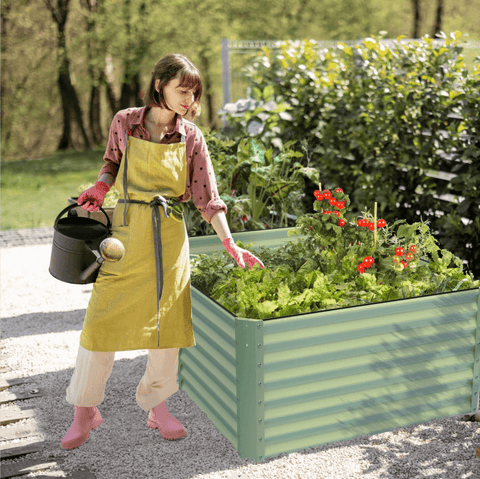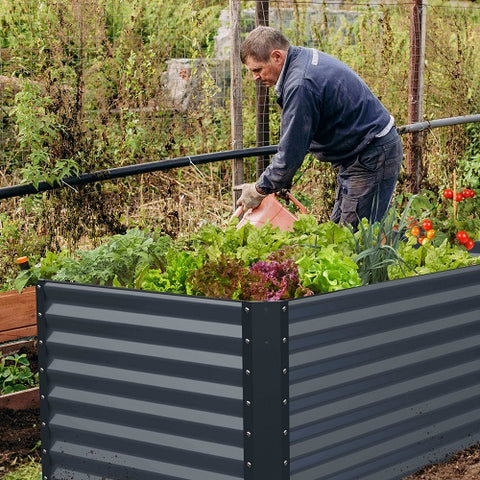Growing your own produce at home helps save money and ensures that the food you eat is of the highest quality. This may be why avid gardeners spend time cultivating and growing their own fruits and vegetables. If you are an avid gardener, then sometimes you may even find that you grow more than you can consume. When that happens, what do you do with the extra plants in your garden? Let's take a look at some of the best ways to deal with the extra gain.The following content also has some reference value for raised garden beds.
Save your produce
The easiest thing to do with excess fruits and vegetables that you can't eat is to freeze them and store them. To do this, you need to briefly blanch the vegetables in boiling water to remove any bacteria that may be causing the vegetables to spoil. Later, before storage, you can pack it in an airtight or vacuum-sealed freezer bag to slow down any rot.
By freezing your fruits and vegetables, it allows you to enjoy your produce for a longer period of time; Some can even last for years if stored properly. The only downside is that it can take up a lot of refrigerator space, so if you plan to do this on a regular basis, it's best to have a dedicated refrigerator to store your fresh produce.

Canning and curing excess fruits and vegetables are also alternatives that don't take up refrigerator space. But these processes are more complex. For example, if you choose the canning route, you will need to use a pressure canning machine to eliminate bacteria that blanching cannot eliminate. However, if you don't have access to a high-pressure canner, you can marinate your fruits and vegetables before canning to prevent rot through the natural preservation properties of ingredients such as salt during the pickling process.
Share and donate
Of course, you can also share your extra food with others. You can choose to share it with friends and family or donate it. A good option is a local food bank. Food banks across the country feed millions of Americans facing food insecurity, such as the homeless, poor families, and even children and students. In addition, donating your canned and cured produce will help alleviate hunger in the country.

Display and sales
If you want to start a business, you should consider selling your surplus produce. Most communities will have a local farmers market where gardeners can display and sell their fresh harvest. You can also try selling online through digital marketplaces like Facebook and Instagram. Who knows? If you find yourself getting the hang of selling fruits and vegetables and want to do it full time, then you can put your newly developed business skills to good use by opening your own store. It doesn't have to be big or grand - the great thing about opening your own shop is that you can make the rules, manage your own schedule, and become more active in your community. Just be sure to develop a sound business plan and take the proper steps to register your business, such as checking licensing, fees and documentation requirements. These are essential to avoid losses and make the most of your potential risks.
There is definitely a sense of pride and accomplishment in growing your own produce. Not only will you be able to enjoy high quality food immediately, but it's also a step towards a sustainable lifestyle. Also, your surplus doesn't have to be limited to your home garden. Whether you share, donate, or sell them, it can bring life not only to your own home, but also to other families who have the opportunity to get involved.









